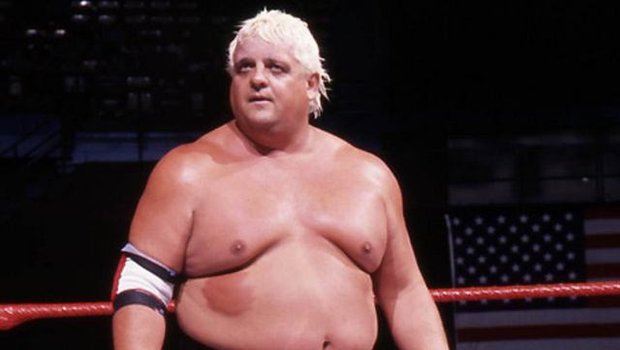Presented by Ring of Honor
Dusty Rhodes has a book with him that has his notes from over the years from when he was in charge of Florida Championship Wrestling, Jim Crockett Promotions, WCW and other places.
1987 was a huge year for JCP. They ran big shows, got themselves on PPV and battled the WWF head to head. The biggest regret from the year is that Magnum TA got hurt in 1986 and could not live up to the grand plans Dusty had for him.
A house show was expected to do triple what the advance ticket sales were. Doubling the advance would probably put you at a break-even point.
Lex Luger got mad at Rhodes booking himself to win a bunkhouse battle royal and seemed to want to fight him on Crockett’s airplane after the show that night.
Everybody on the card needs a little spark or push because some fans consider the lower talent to be amongst their favorite wrestlers.
Rhodes had to win the Bunkhouse battle royal finals every year because he was “da bull of dee woods”
Generally 1-3 matches are what draw the house, and the other bouts serve as garnish.
Dusty laughs as he reads some of the cards from early in the year and sees matches with Jimmy Valiant and Paul Jones’ army.
The guys never complained about being booked in scaffold matches.
Young guys were given prelim spots at house shows in order for Dusty and the office to get a look at the talent and prepare for how they’d be utilized once they made it on the roster.
JCP’s plane was named “Stardust” after Rhodes. Ric Flair was pissed that Rhodes got such an honor. Rhodes figures Flair is still bitter over it.
One time in 1987, Richmond and Baltimore both sold out on the same night, with Dusty and the Road Warriors headlining against the Horsemen in both places.
The World tag titles could be used as a major draw because of the high level of talent that was going after them. The Rock and Roll Express, the Road Warriors, the Horsemen etc.
The first half of the year would often be designed to peak in summer where the “Great American Bash” series could be used to blow off major battles.
Rhodes claims that the WWF had the Cap Center booked on July 2nd, 1987, then gave it up because they didn’t think Washington D.C. could draw during the July 4th holiday. JCP took the spot and drew 19,000 fans.
Dusty watched “Mad Max: Beyond Thunderdome” and it inspired him to have the “War Games” cage built.
In order to show the locker room that he was game for working hard, Dusty usually put himself in first in War Games in order to work the longest duration possible.
When booking, Rhodes would change up the line ups almost nightly in order to keep things fresh and test things out to see what drew.
Dusty would get advance tapes on guys who were coming in and start to work out booking plans for their debut.
Terry Funk still draws on indy shows with Rhodes because they have the longest ongoing rivally in wrestling.
The WWWF would build up the next challengers for their champs on the same cards as the champions were working. This naturally built to the next round of main events. Dusty and Superstar Graham were used to bolster Bob Backlund’s early defenses as Backlund was not an established draw at the time he won the belt.
Some guys were happy to be average. They could still enjoy a long career as mid-carders, but the money guys were going to be used all over the place on top.
The UWF roster was not pushed to the top of JCP because Rhodes had his favorites and he did not want to de-push his crew for the sake of newcomers.
Rhodes makes light of the UWF’s drawing power and wonders why guys who failed to draw flies for Bill Watts would be pushed by him in JCP.
Starrcade was started when Jim Crockett called Rhodes down in Florida in 1983 and asked him to come up with a concept for a supercard. The thing grew and evolved and within 3 years the show was being done from multiple venues and shown on closed circuit.
Ron Garvin and Ric Flair had great matches. Rhodes loved the hard-hitting bouts.
Dusty sees kids come to the indy shows today who have no idea who Rhodes is, but he knows that kid’s dad is telling him “That’s Babe Ruth”.
Getting in the ring hurts now that Dusty is older. He jokes about his creaky elbow that still finds its mark.
The ’87 Crockett Cup is gone over. Rhodes makes fun of the jabronis in the tournament like the Mod Squad.
Rhodes has a false memory of Jim Cornette mocking the Mulkeys, only to see his Midnight Express lose to them on TV in a fluke. He even mentions Dennis Condrey taking the fall. Of course, the actual match was the Mulkeys beating the Gladiators to earn a spot in the Crockett Cup.
Jim Crockett asked Rhodes to use 4 yearly events to peak business.
While booking, Dusty pretty much worked 7 days a week, often both in the office and the ring. He had 4 TV shows to produce each week.
After the Great American Bash, stipulation matches like War Games could be used to pop houses that had just seen a huge event and might otherwise be flat.
At their peak, JCP ran 4 shows in one day.
The Rock and Roll Express vs. Midnight Express feud could draw as well as any combo of the top guys.
The NWA conventions saw all the promoters take part in rowdy parties after business wrapped up for the day.
Ted Turner had wrestling to thank for the early success of his TV station, WTBS. Turner did not give JCP much support over the years, even with big ratings coming from them. The Turner TV producers and cameramen were not always the best. NFL Punter Reggie Roby was given a job as a cameraman one spring during the off season. A Turner producer was once caught smoking pot right before a TV taping began.
One time, JCP paid to fly in all their talent to TBS studios, only to find out the studio was being remodeled. After a brainstorming session, Dusty had the crew tape a “roundtable” discussion with clips from all the feuds that were ongoing.
Johnny Ace was given his name by Rhodes. Dusty makes a joking call out to Ace to give him a job now that Ace is a WWE exec.
September and October were always down times as kids went back to school. Rhodes countered this by running a “short show” with the promise of having the show done in time for kids to get to bed. The gimmick worked as they made money.
They brought War Games to New Jersey to compete in Vince McMahon’s backyard.
Starrcade was loaded with a pair of cage matches and a scaffold match. They presented live matches in a few extra towns to help the closed circuit business. Dusty loves the match he had with Lex Luger on that night,
Rhodes buries Gary Juster as being totally uncreative. Only Jim Herd can compete with Juster for having a lack of wrestling booking ability.
Dusty goes over the bigger indy groups that are touring today. He thinks they need to join together and make a new “NWA” type of group where talent can be shared and exposed on TV.
The guys Dusty got over in 1987-88 (Sting, Luger) carried WCW for years after Rhodes was fired in early 1989.
Magnum TA’s career being ended prematurely was a huge blow to JCP, but Rhodes tried his best to produce a suitable replacement in the wake of the tragedy. Rhodes spent a few days with Magnum’s family. Then Jim Crockett called Dusty and asked Rhodes who was replacing Magnum in the big cage tag match that was coming that weekend. Nikita Koloff wanted to be a babyface, and Rhodes took the moment to call him and tell him they were going to make the move.
Magnum TA had a video package put together to the song “Did you ever know you’re my hero?” with his Momma by his side. This was done to build to TA vs. Nikita Koloff. The first time Rhodes saw it, he cried.
Rhodes closes by telling the fans to support ROH.
Final thoughts: If you can get past the ego stroking Rhodes gives himself, this is a fun look back at an important year in JCP history, from the mind that booked it all.


